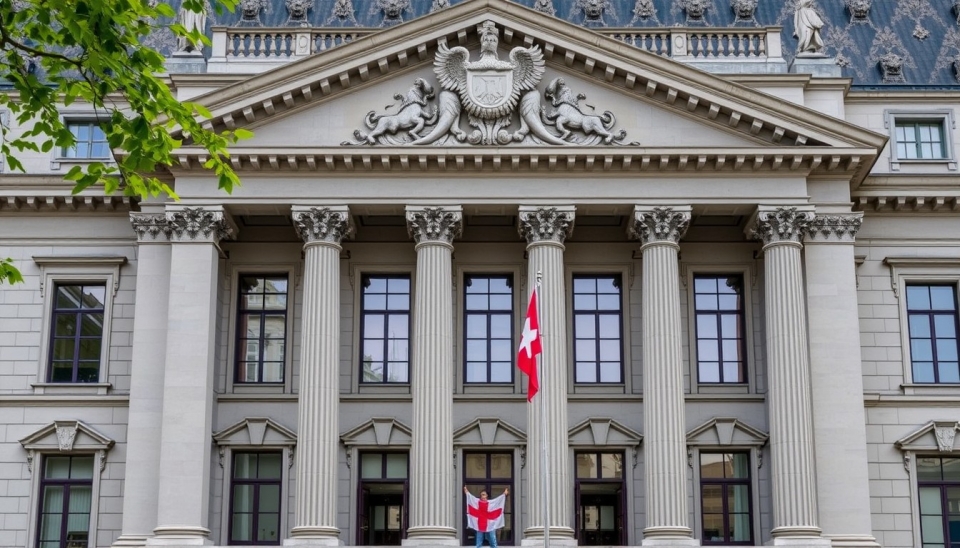
The Secrets of China's Economy: Opportunities for Big Deals
The U.S. Treasury Secretary, Janet Yellen, recently shared her views on the economic situation in China, stating that there is now an opportunity for significant deals to be struck between the two countries. Her comments highlight the importance of economic relations and cooperation between the U.S. and China in light of current global challenges.
Continue reading
New Tariffs: Who Wins and Loses in the Automotive Industry?
Recent changes in international trade policy have heightened concerns regarding the 25% import tariffs on cars and auto parts. These measures will affect both manufacturers and consumers, sparking a wide range of reactions in the automotive sector. Amidst supply chain crises and rising price pressures, the new tariffs offer fresh opportunities for local manufacturers while adversely impacting certain market segments.
Continue reading
Federal Reserve Creates Policy Space in Global Economy
The Federal Reserve of the United States (Fed) is opening new opportunities for monetary policy both domestically and internationally. The latest Fed meeting concluded with interest rates remaining unchanged, providing central banks in other countries with greater maneuvering space. This decision was made against the backdrop of increasing global instability and economic uncertainty.
Continue reading
The Swiss National Bank Should Distribute Profits Directly to Citizens, Study Says
According to recent data, the Swiss National Bank (SNB) should start distributing its profits directly to citizens, as proposed by a new study. This suggestion aims to help reduce social inequality and support the economic stability of the country. The research argues that this step could improve the standard of living in Switzerland, particularly for those living on the edge of poverty.
Continue reading
Red Sea Crisis: How Asian Firms Find Winners and Losers Amid Soaring Freight Rates
The crisis unfolding in the Red Sea has significantly impacted international trade, causing fluctuations in freight rates that create both opportunities and threats for Asian companies. In recent weeks, freight prices have risen sharply, prompting many carriers to reassess their strategies and cost estimates. This situation has arisen against the backdrop of geopolitical instability affecting shipping lanes and cargo volumes through this vital waterway.
Continue reading
US Interest Rate Repricing Expected to Increase Market Volatility, Says Deutsche Bank's Holtze-Jen
In a recent forecast, Deutsche Bank economists, led by Lars Holtze-Jen, announced that the anticipated repricing of interest rates in the United States will lead to increased market volatility. They noted that current changes in economic policy and financial conditions are creating tension in the market, which is only expected to rise with rate shifts. The bank's experts warn that such changes could significantly impact various sectors of the economy, including bond and equity markets.
Continue reading
New Wave of Financial Instability in Venezuela: Maduro's Regime Drains Dollar Reserves
In recent days, reports have emerged indicating that the Venezuelan government under Nicolás Maduro is encountering severe financial difficulties. It has become evident that the regime is literally "burning through" its dollar reserves, raising increasing concern among both local and international experts. External economic conditions and internal issues are leaving the government with few options to address its financial challenges.
Continue reading
Israel Cuts Growth Forecast Due to Gaza Conflict
The Israeli Ministry of Finance has released a new economic growth forecast, revising it in light of the ongoing events related to the conflict in Gaza. According to the updated data, economic growth for the coming year is expected to be significantly lower than previously projected. The primary factors contributing to this drop include economic upheaval caused by military actions, which have led to decreased consumer activity and a slowdown in investments from both domestic and international businesses.
Continue reading
Mexican Economist Ponders: Price Volatility Clouds Inflation Forecasts
In a recent interview, Ivonne Heath, an economist at the Bank of Mexico, expressed deep concern regarding the instability of food prices, which continues to significantly impact inflation in the country. She stated that volatility in the agricultural sector, combined with external economic challenges, is leading to unpredictable pricing of essential goods, making effective forecasting of consumer prices increasingly difficult.
Continue reading
House Prices in New Zealand Decline for Six Consecutive Months
House prices in New Zealand continue to fall, marking the sixth consecutive month of decline. Recent data indicates that this downward trend is linked to high interest rates, which negatively impact the real estate market. Reports suggest that housing is becoming less affordable for many locals, leading to difficulties in purchasing property.
Continue reading